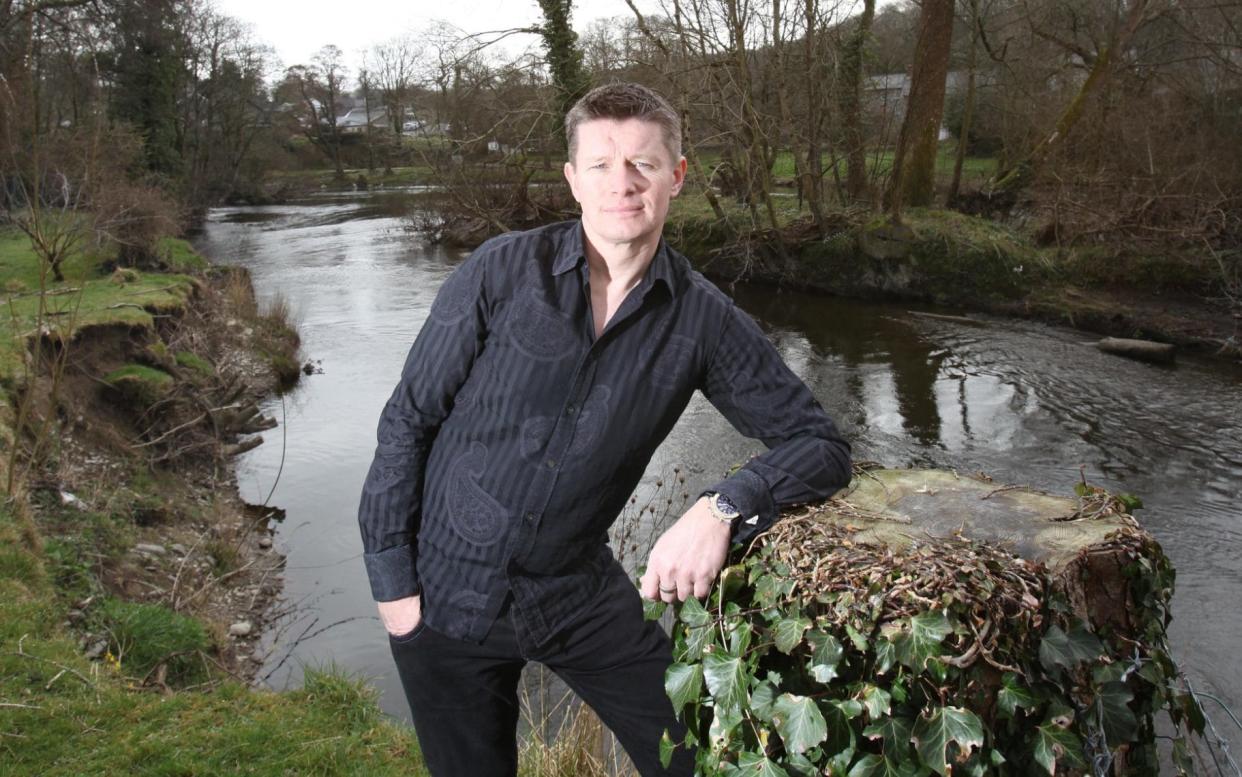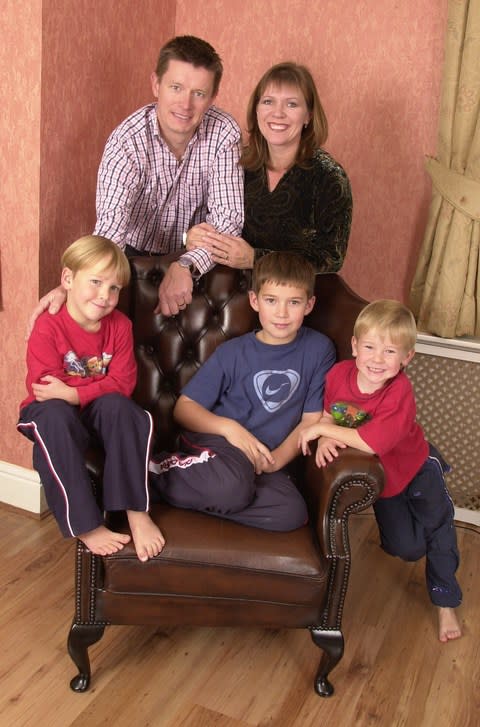Who's the daddy? The truth about Britain's paternity test problem

When millionaire Richard Mason made the shock discovery he was not, in fact, the father of his three sons, he was quick to call lawyer Roger Terrell.
The farmer’s son has become a sought-after expert in the murky world of paternity fraud – and business is booming.
“Richard wasn’t in a very good place,” Terrell says of his client, who is the co-founder of the price comparison website Moneysupermarket.com. “Psychologically the impact of this is severe.”
Earlier this week Mason, 55, revealed his personal torment in a newspaper interview. He said that following a diagnosis of cystic fibrosis in 2016, he had been told most sufferers of the condition are infertile – and thus that it was extremely unlikely he would have been able to father his three sons, aged 23 and 19-year-old twins.
He confronted his ex-wife Kate, who eventually admitted she had engaged in an on-off affair with a colleague during their 20-year marriage, which ended in 2006.
Terrell represented Mason as he attempted to claw back a £4 million cash sum paid as part of his divorce settlement in 2008, while also pursuing his ex-wife for paternity fraud.

Mrs Mason agreed at the end of November to settle matters with a payment of £250,000 – on the condition the biological father remained anonymous. Terrell believes the move may have been prompted by a desire to stop the identity being disclosed in court. In recent days Mason has suggested he will write a book about his ordeal and offer up a £5,000 reward to reveal the identity of the biological father of his sons.
Sensational it may seem but for Terrell, who established his solicitor’s firm in Peterborough in 1988, such stories are becoming routine work – albeit usually without such eye-watering sums at stake. He regularly receives enquiries from fathers as far and wide as Canada to New Zealand, as well as Britain: in total, the 64-year-old estimates he has handled more than 50 paternity fraud cases, 20 of which have gone to court.
“I’ve done these cases for senior partners in London legal firms, for doctors, for archaeologists, all sorts of sophisticated people,” he says. “Paternity fraud doesn’t discriminate.”
Certainly those in the business say such cases are far from refined to the sofas of trashy daytime television; this is a deceit that spans the class divide. Indeed until 1948 the Home Secretary was required to be present at the birth of a member of the Royal family, which Terrell says was to ensure the child was a genuine descendant of the monarch, and not an imposter being sneaked in.

Attempts to quantify the scale of Britain’s illicit fecundity are, as you might expect, vague. In 2016 a research project undertaken by scientists from KU Leuven University in Belgium suggested up to two per cent of British fathers may be victims of paternity fraud, adding that given a lack of hard evidence, prior scientific studies – some of which put that figure as high as 10 per cent – may have been overestimates.
Anecdotally, though, the numbers are on the rise. British testing firm DNA Clinics analysed 5,000 results selected randomly from between January 2014 and June 2016, and discovered 51 per cent of English men had been ruled out as being the paternal father of children they had been tested for a genetic link to.
This increase in cuckolded men discovering they have been deceived is, according to Terrell and other legal experts in the field, due to home DNA testing kits being “much more prevalent,” he explains. Now widely available online for under £100, it means we have more conclusive genetic evidence about where we came from than ever before.
“DNA testing is much more prevalent, much cheaper and that is why these cases will increase,” he says.
Prior to Richard Mason, Terrell’s most high profile case was a client called Richard Rodwell. In 2013, the then 46-year-old factory manager made headlines after being awarded £25,000 in damages against his former wife after DNA tests revealed their 20-year-old daughter and her 18-year-old brother were not his biological children. Following his 2005 divorce, Rodwell paid out £15,600 in maintenance for the children before finding out they were not his.
When they discovered the truth, they cut all ties with him. He spoke of suffering from depression in the fallout and feeling as if he had endured a bereavement; whatever money he had secured following the legal battle, he said, could never expunge the grief.
Another client, Andy Phillips from Telford, Shropshire, received a £19,000 out of court legal settlement after discovering he had for years been paying child maintenance to a son that was not his. He said at the time he would never be able to forgive his former partner for the hurt.
Having seen the impact of such cases at first-hand Terrell believes paternity fraud should be made a criminal offence, but admits “the police will not pursue criminal prosecutions”.
To add insult to injury, there is little legal assistance available to those who have been deceived attempting to claw back child maintenance. In 2015 an unidentified university lecturer known only as Mr X in court was awarded compensation after it was ruled he had been a victim of “clear deceit and fraud” at the hands of his ex-wife, a successful businesswoman, who tricked him into believing the baby she conceived through IVF at a clinic in Spain was his child.

But, because of legal precedent, the woman was not required to hand back the £60,000 in child maintenance she received after the couple split.
The close bonds forged raising a child mean other fathers simply cannot bring themselves to reveal the awful truth to their offspring.
Cheryl Grace, senior solicitor based at Stowe Family law in Leeds, currently has a client who has discovered his teenage daughter does not actually belong to him.
“He believed all the time she was his then his wife just turned round and said ‘she isn’t’,” Grace says.
Initially her client, whose marriage has since broken down, wanted to pursue a DNA test, but has since changed his mind.
“Now he has time to reflect he has realised he doesn’t want to risk ruining the relationship with his daughter,” she says, underlining that this really can happen to anyone.
“Human nature applies to us all,” she says. “It only takes a woman to get a bit tipsy at the Christmas party or be unhappy in her marriage and someone shows her some attention and suddenly she has a situation she has to deal with in one way or another.”
Lorraine Harvey, a lawyer at legal firm Slater and Gordon which has also dealt with paternity fraud cases, agrees that the availability of DNA testing is behind the rise in inquires.
Most recently the firm was contacted by a man who had been present for the birth of his child, nursed it through the first few weeks and then was suddenly informed by the mother that it wasn’t actually his.
In that instance, Harvey says, it was “a fairly simple case of just making an application to amend the birth certificate.”
Legally speaking, perhaps. But unravelling the years of deceit such cases expose is something that can never be resolved.


